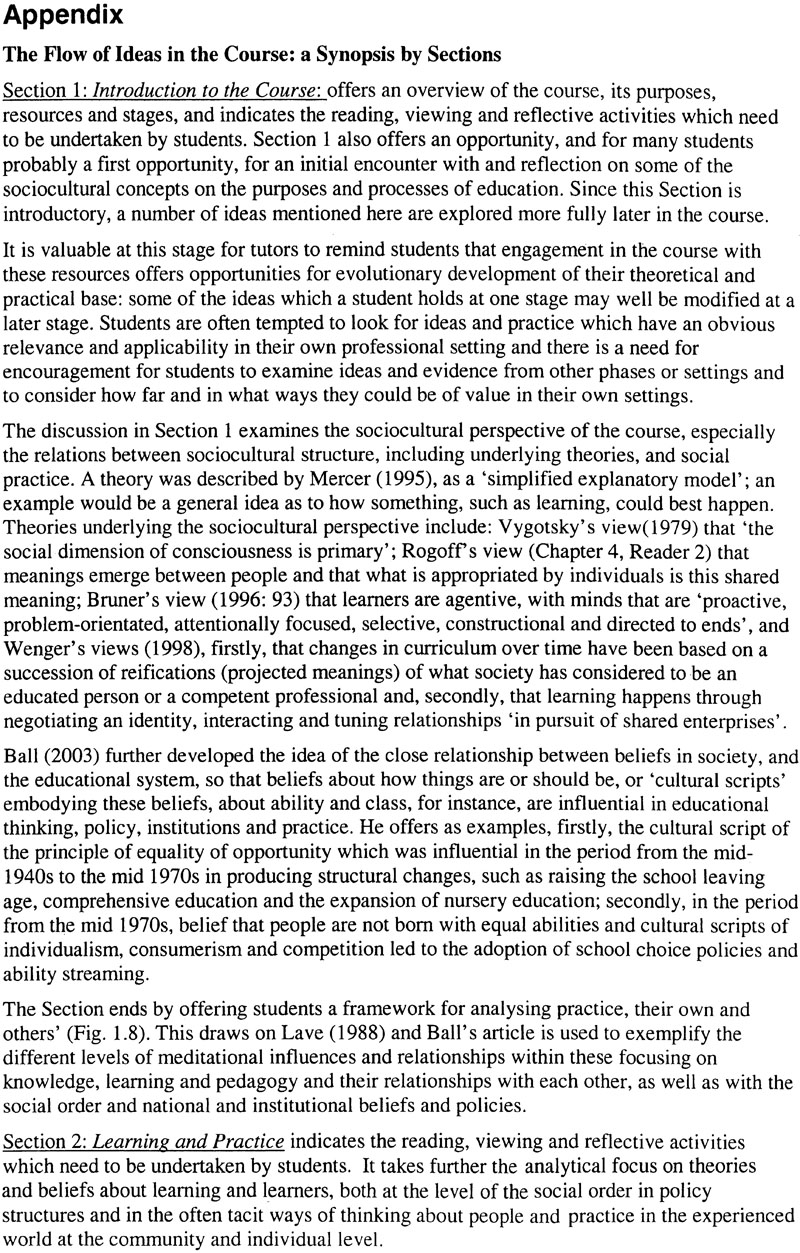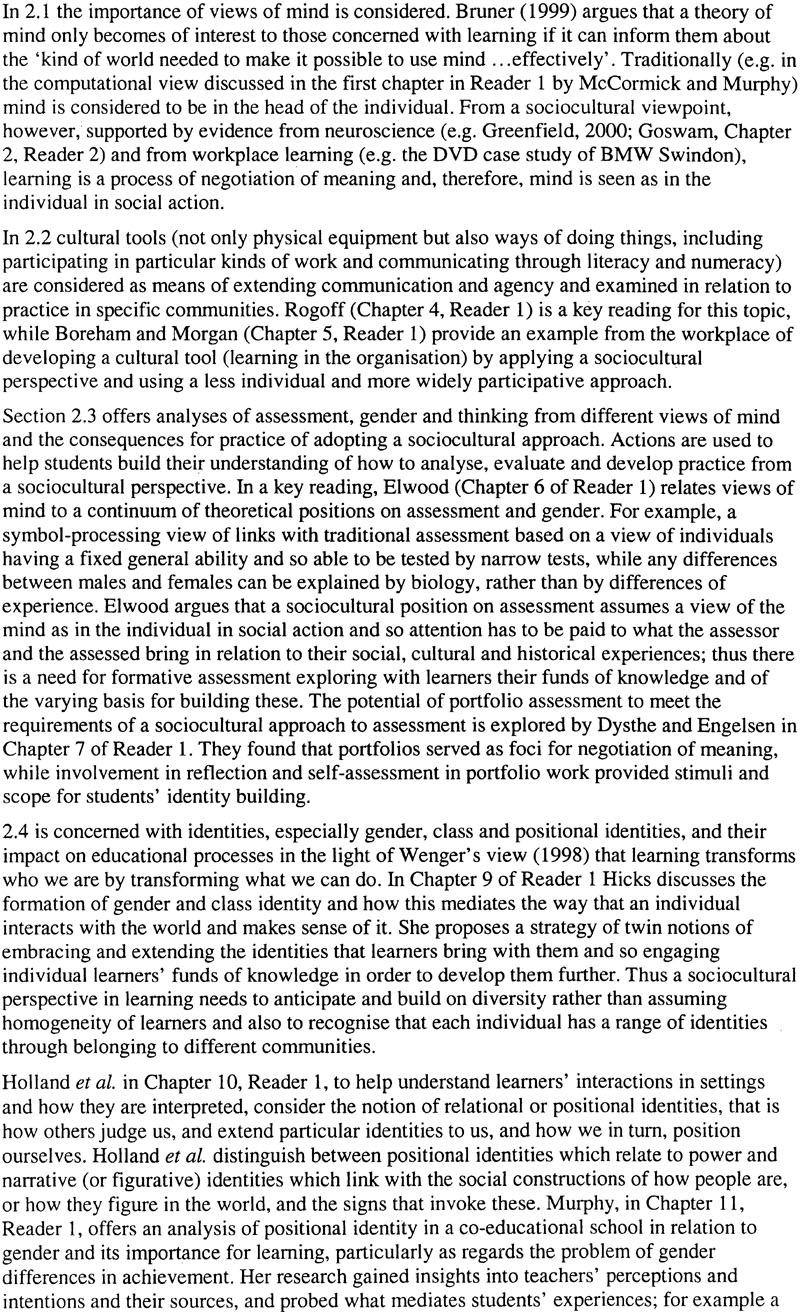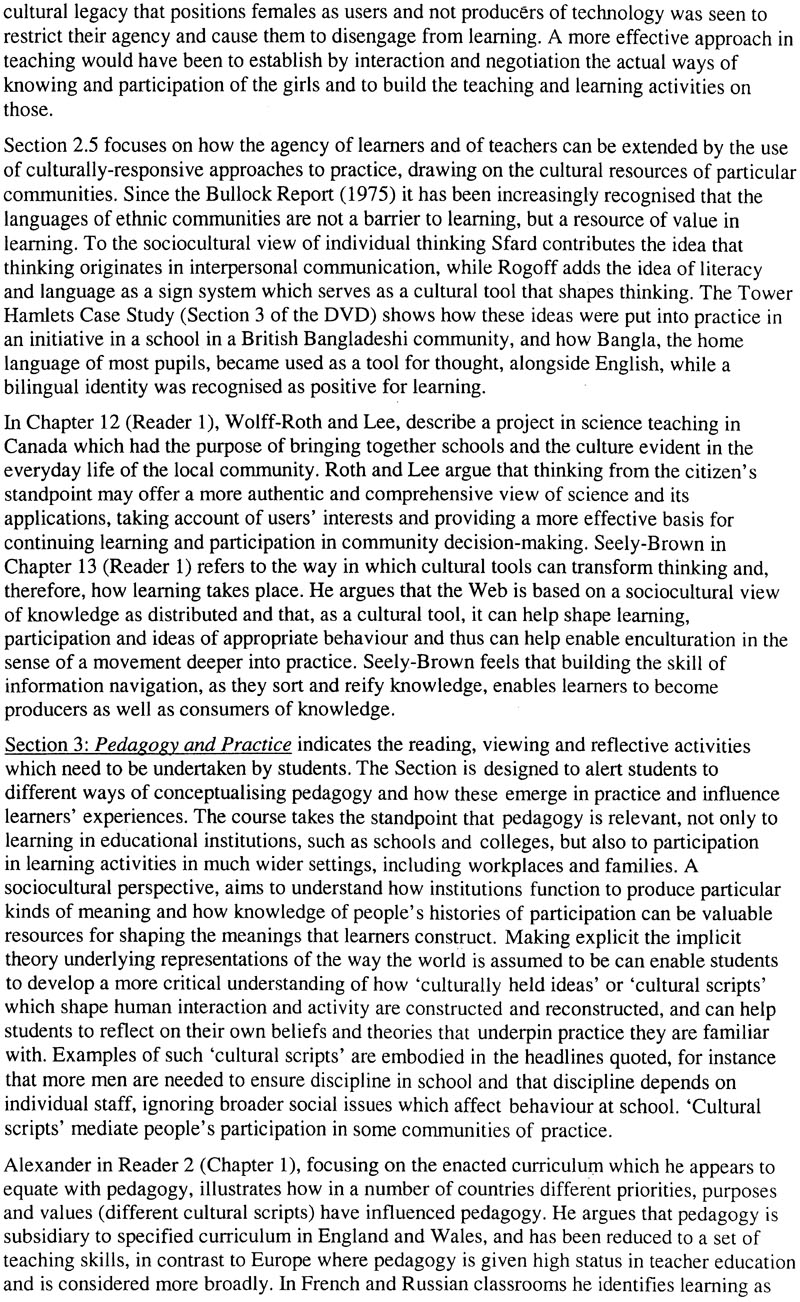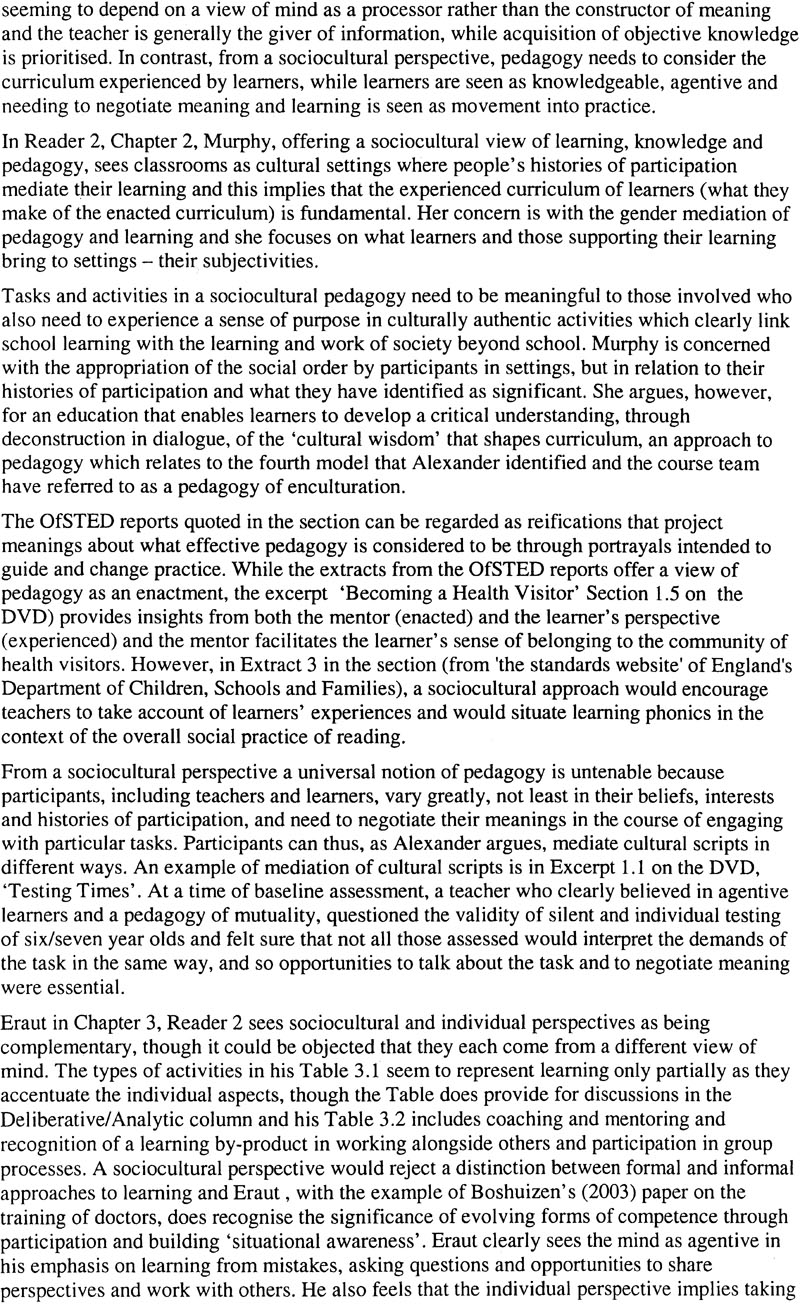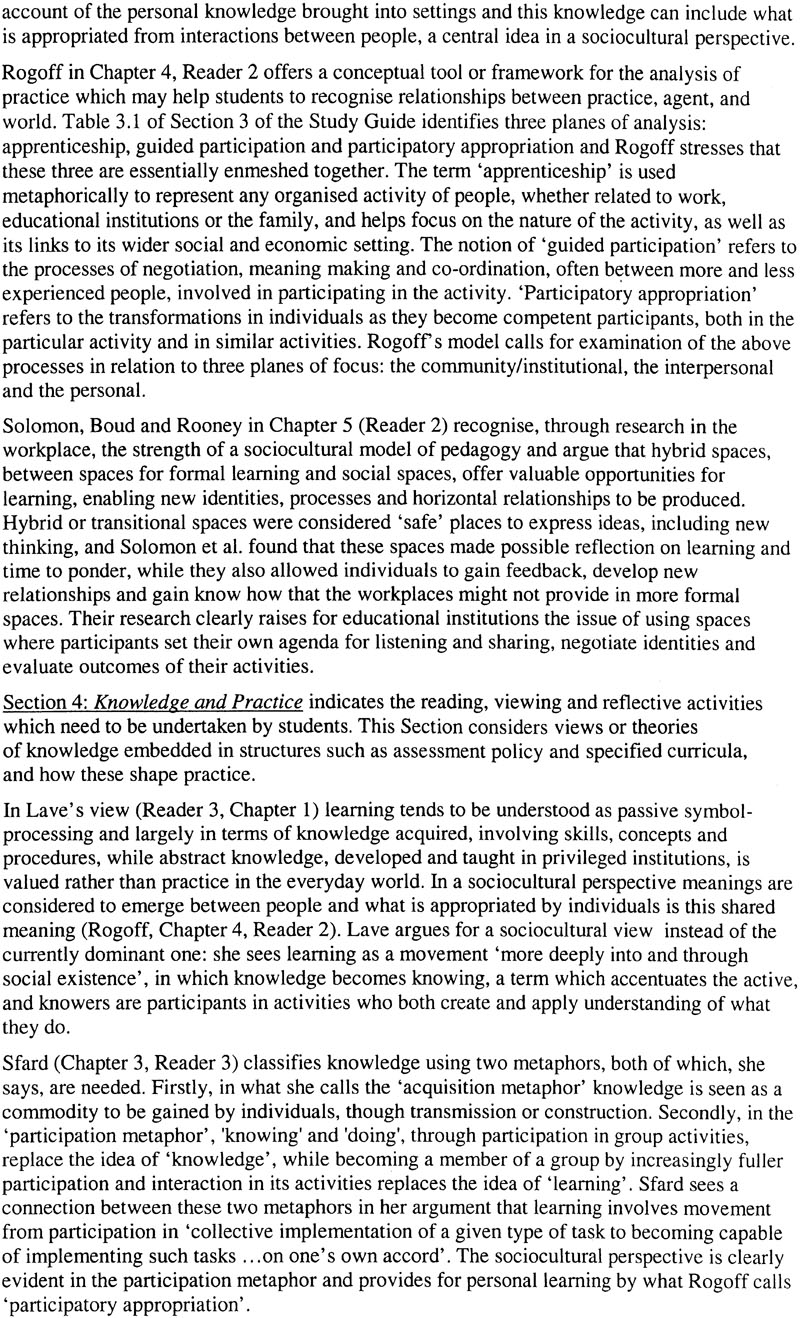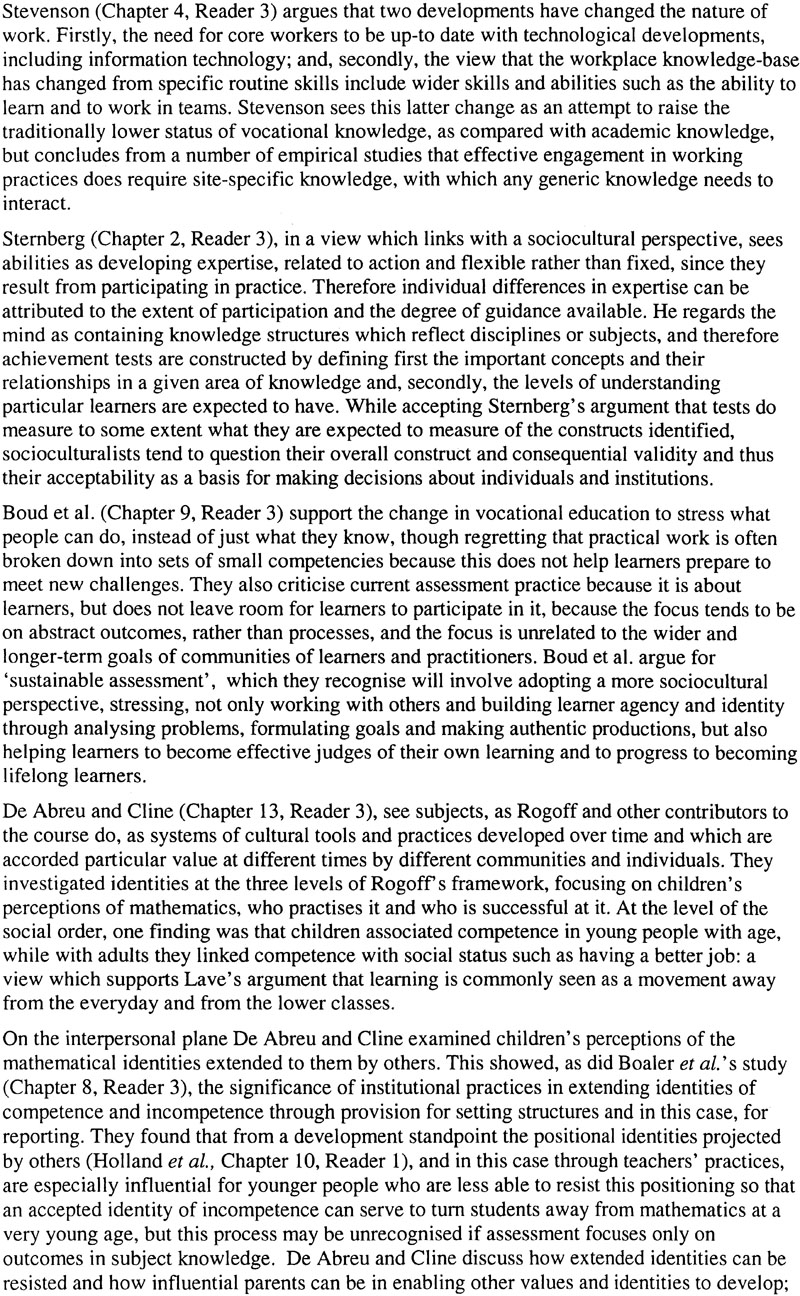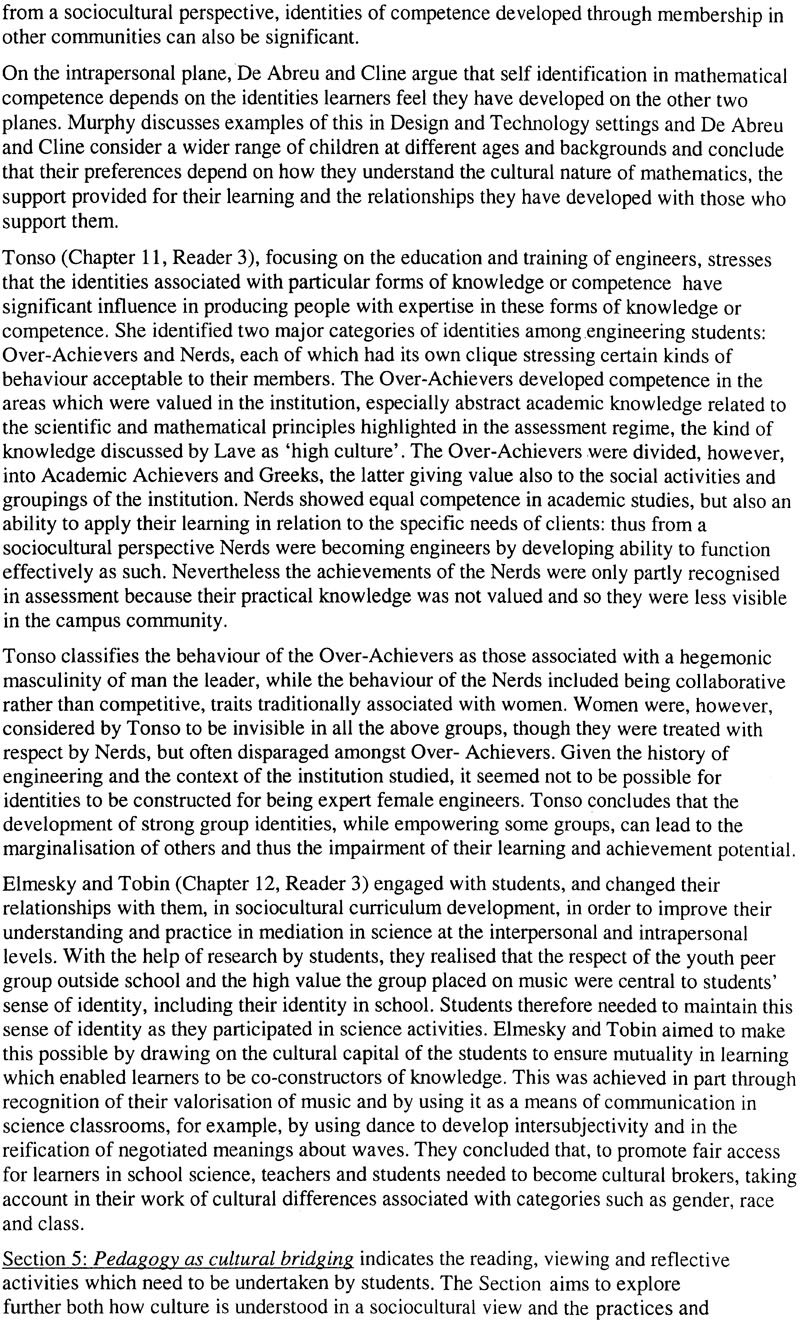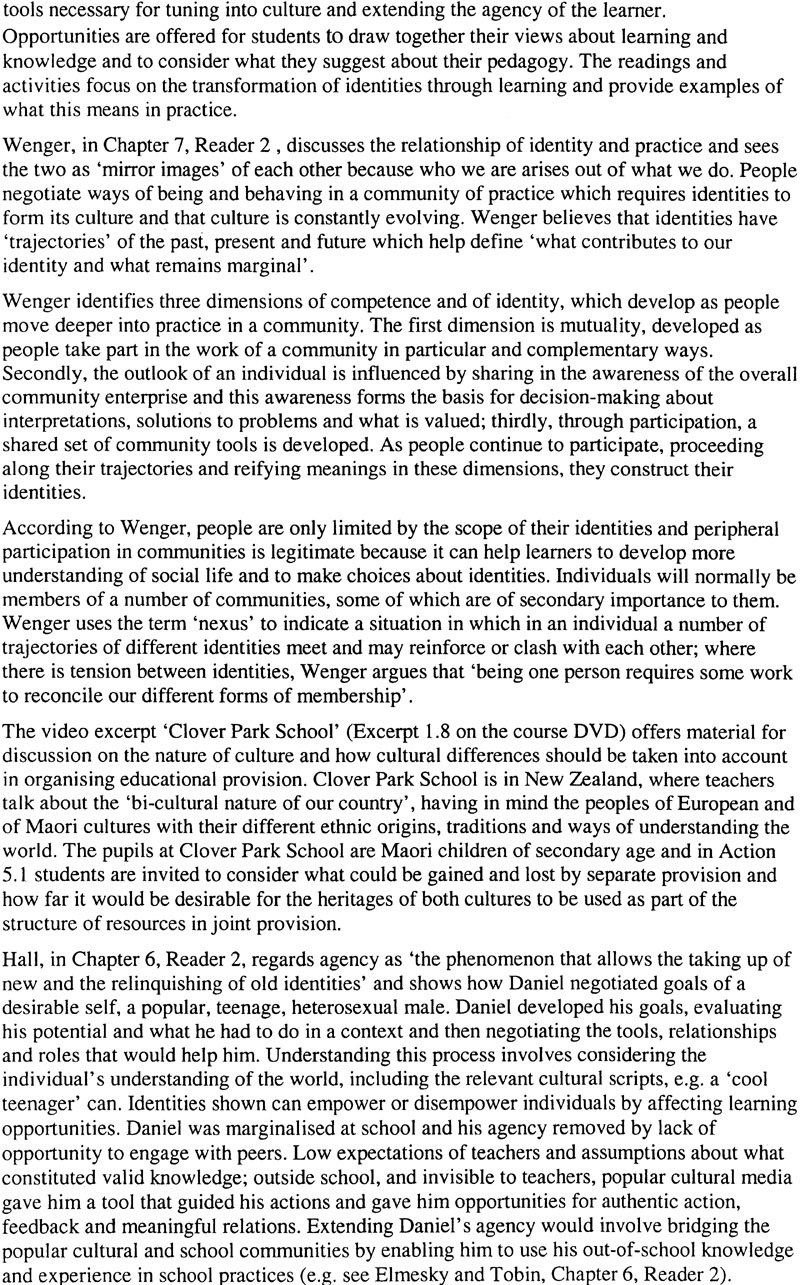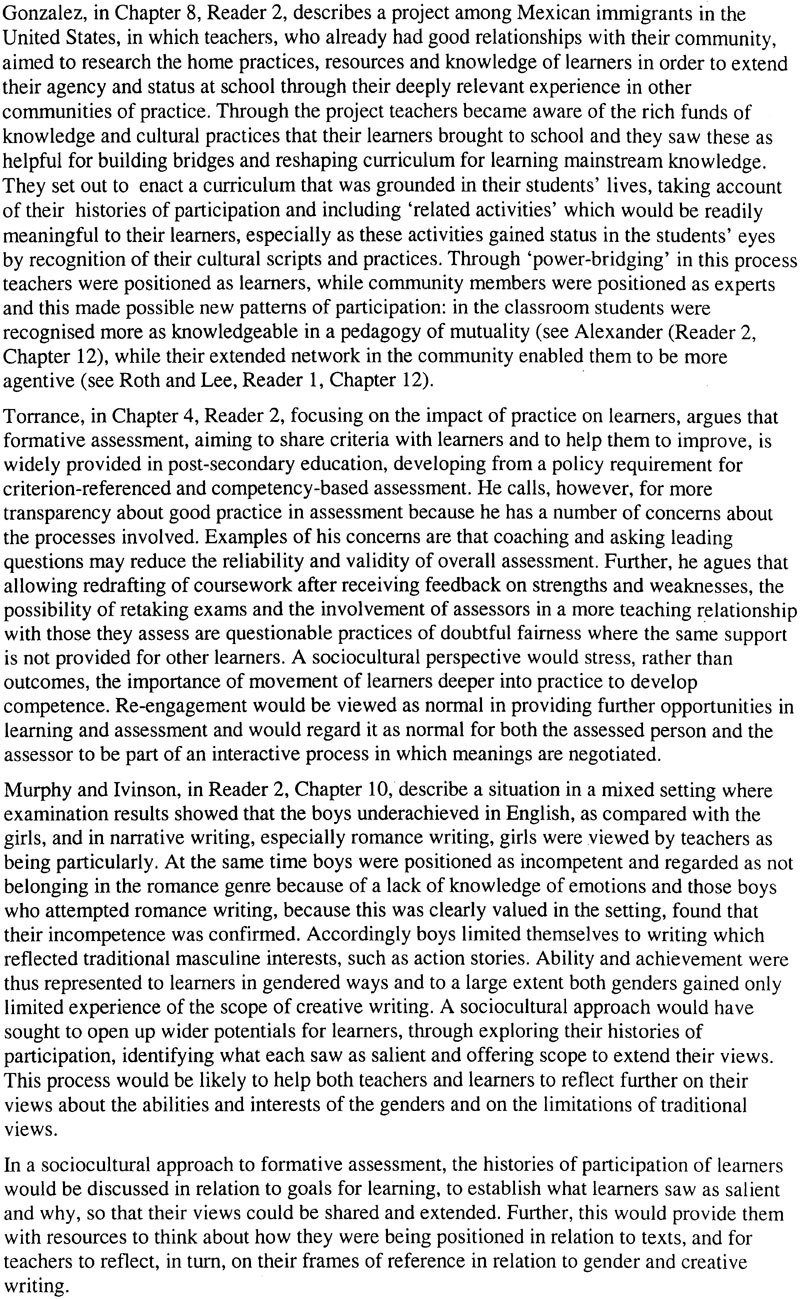The materials for Curriculum, Learning and Society: Investigating practice consist of this Course Guide, the Study Guide, three Readers, materials on the OLE and a Media Guide, and an Assignment File – all of which are provided by HKMU.
Course Guide
The Course Guide tells you briefly what the course is about, what it contains, and how you can work your way through it. It also gives you information about tutors and face-to-face sessions, and assessment. Remember to refer to this Course Guide throughout the course to help clarify important points about studying EDU E846.
Study Guide
The Study Guide includes five sections (see Appendix). Each of its five sections includes directions for working through the different components of the course materials and comments on, and summarises, the key issues and ideas in the Readers. It also guides you to develop your assignments, including the project.
Readers
There are three Readers, they are:
Reader 1
MURPHY, P. and HALL, K. (eds) (2008) Learning and Practice: Agency and Identities, London, Sage in association with The Open University.
Reader 2
HALL, K., MURPHY, P. and SOLER, J. (eds) (2008) Pedagogy and Practice: Culture and Identities, London, Sage in association with The Open University.
Reader 3
MURPHY, P. and McCORMICK, R. (eds) (2008) Knowledge and Practice: Representations and Identities, London, Sage in association with The Open University.
OLE materials and Media Guide
Multimedia materials on the OLE include a range of audio-visual resources spanning educational and workplace settings in the UK. The Media Guide will inform you about how to access these resources, and provides you with important background to the excerpts on practice and the case studies.
You should work through the OLE materials as directed by the Study Guide. While the cases are all UK based, they help you to develop analytical skills and a critical understanding of the theories discussed in the course. You should also try to compare the cases and excerpts on the OLE with situations in Hong Kong, and particularly your own teaching/working context.
Course resources in the OLE
There are some online resources which are accessible via the course on the platform – the Online Learning Environment (OLE).
Assignment File
The Assignment File provides an overview of the nature and requirements of the course assignments. It guides you carefully through the five assignments.



